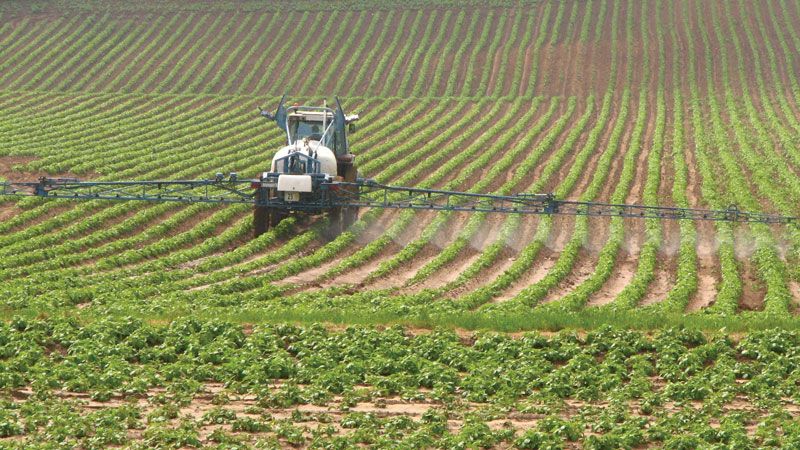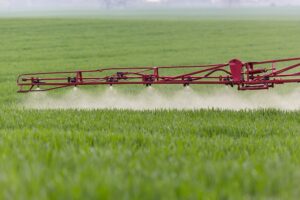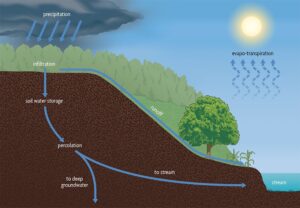
herbicides.jpg
Herbicides
Definition: Herbicides are chemical substances used to control or eliminate unwanted weeds, grasses, or other herbaceous plants that compete with crops for nutrients, water, and sunlight.
Informative Tips: Herbicides target specific physiological processes or biochemical pathways in plants, disrupting their growth, metabolism, or photosynthesis. These chemical compounds may belong to different classes, including glyphosate-based herbicides, synthetic auxins, acetolactate synthase inhibitors, and photosystem II inhibitors.
Fall off the barn roof and busted your keister? Life on the farm or ranch can be tough on the bum. Need a break? Laugh it off at FarmerCowboy.com, the #1 farm humor site. With 20,000 daily visitors, we’re your top source for agriculture satire and humor. Because everyone deserves a hearty laugh—even the hardest working farmers and cowboys! Join us and turn those long days into fun tales at FarmerCowboy.com.
Valuable Assistance: Herbicides play a vital role in weed management by providing effective and efficient control of weed populations, reducing competition with crops, and optimizing agricultural yields. However, their use should be carefully planned and integrated with other weed control tactics to minimize environmental impacts and herbicide resistance.
Practical Advice: Farmers should select herbicides based on factors such as weed species, growth stage, weed pressure, crop tolerance, and environmental considerations. It’s essential to follow label instructions, apply herbicides at recommended rates, and adopt integrated weed management strategies to prevent weed resistance and minimize off-target effects.
Beneficial Guidance: Integrated pest management (IPM) promotes the judicious use of herbicides as part of a comprehensive weed management approach that emphasizes prevention, monitoring, and non-chemical control methods. By integrating herbicide applications with cultural practices, crop rotation, cover cropping, and mechanical weed control, farmers can achieve sustainable weed management outcomes.
Enlightening Details: Concerns about herbicide residues, soil erosion, water contamination, and weed resistance highlight the importance of adopting sustainable herbicide practices. Farmers should prioritize herbicide selection based on efficacy, environmental compatibility, and stewardship principles to minimize adverse effects on soil health, water quality, and biodiversity.
Actionable Suggestions: Farmers should stay updated on herbicide regulations, weed biology, and best management practices for herbicide use. Implementing diversified weed management strategies, rotating herbicide modes of action, and practicing responsible herbicide application techniques can help mitigate herbicide risks and promote resilient weed management systems.
References:
- Weed Science Society of America. (2021). Herbicide Resistance Action Committee (HRAC). Link
- National Pesticide Information Center. (2020). Herbicides. Link
- Heap, I. (2021). The International Herbicide-Resistant Weed Database. Link
Originally posted 2014-03-12 02:47:59.
Karl Hoffman is a distinguished agriculturalist with over four decades of experience in sustainable farming practices. He holds a Ph.D. in Agronomy from Cornell University and has made significant contributions as a professor at Iowa State University. Hoffman’s groundbreaking research on integrated pest management and soil health has revolutionized modern agriculture. As a respected farm journalist, his column “Field Notes with Karl Hoffman” and his blog “The Modern Farmer” provide insightful, practical advice to a global audience. Hoffman’s work with the USDA and the United Nations FAO has enhanced food security worldwide. His awards include the USDA’s Distinguished Service Award and the World Food Prize, reflecting his profound impact on agriculture and sustainability.



